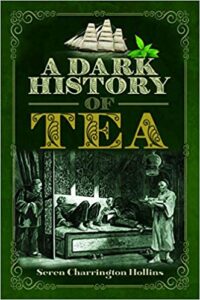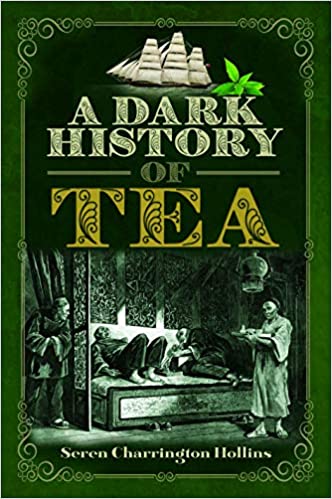
After water and air, humans consume more tea than anything else. Every day millions of tonnes of it are shipped across the globe to feed an industry worth billions. How this global appetite and trade came to be established is a long and complicated story, one which plays a significant role in how the world we know today came to be. This article will not endeavour to relate the history of tea in full but serves up instead some surprising and sometimes sinister stories of how this humble plant has shaped our civilisation, sewing the seeds of globalisation, the industrial revolution, slavery and the opium wars.
Tea and the Industrial Revolution
A question which historians have struggled with for many years is why the industrial revolution happened in Britain before anywhere else. One surprising reason for this may be that the British taste for tea allowed cities in Britain to grow larger than elsewhere in Europe.
One of the requirements of an industrial society is a large urban workforce. Unfortunately the greater the number of people living in a given area, the higher the incidence of disease, in particular, in early modern cites where effective sewage systems were yet to be introduced, those diseases such as cholera which were spread by contaminated water.
However the British, unlike other nationalities, had no taste for plain water, and drank only beer, or from the mid eighteenth century onwards, tea. Not only does the preparation of these drinks require the boiling of water which kills off microbes present in the water (something which would not be understood until the work of men like Pasteur and Koch in the 19th century) but the chemicals in tea such as tannin act as a natural antiseptic.
This taste for tea allowed British cities (as well as the cities of the Japanese, who were also prodigious tea drinkers) to grow past the limits set on other cities by diseases which increased in prevalence with the size and density of population.
Addicts and Dealers, the Opium Wars and The East India Company
A taste for tea was introduced to England when Charles II married Catherine of Braganza of Portugal 1662 and the first known shipment arrived in 1664 weighing in at just two ounces, a gift from the East India Company to the king. However the demand for tea grew exponentially and by 1801 England was importing 24 million pounds of tea per year, sourced exclusively from China.
Despite the huge demand for Chinese goods in Britain, there was little demand for British goods in China and so merchants of the East India Company were forced to pay in hard currency: silver. This lead to a dangerous depletion of British silver reserves and the kind of vast balance of payments deficit to China which we are so familiar with today.
To reverse this deficit the East India Company began to ship opium from India for sale on the Chinese market. Despite efforts by the Chinese authorities to prevent the influx of the drug, imports grew steadily, rising from 15 tons in 1730 to around 1400 tons in 1838.
In a further effort to stifle this trade the Chinese appointed a hard line official, Lin Zexu who organised the seizure and destruction of British opium shipments, laying siege to warehouses and confiscating it from British ships, even those beyond Chinese waters where the Chinese had no legal jurisdiction.
In response the British mobilised an army from India and making use of its more advanced weaponry, attacked and rapidly defeated the Chinese in the First Opium War. In the terms of the peace settlement the Chinese ceded Hong Kong to the British but perhaps more importantly, China was forced to open its self up for much freer trade.
Prior to this, foreign vessels were only allowed to trade in ports specified by the Chinese government and foreign merchants could not buy and sell directly with the majority of Chinese traders. Instead they could only buy and sell via a small association of Chinese merchants who held a monopoly on east west trade. Following the treaty, further ports were opened up and the British and the monopoly on foreign trade was broken.
Whilst this war perpetuated the damage done on Chinese society by the lethally addictive opium, it also, in the longer run, increased Chinese prosperity and modernity by opening it up to Western trade and influence.
So the British appetite for tea resulted in war and the reshaping of the Chinese economy and society.
The Beginning of Globalisation: Tea, Drugs, Sugar, Slavery
Whilst Britain had imported tea from China the British taste for tea differed from that of the Chinese in that the British enjoyed tea with milk, but most importantly with sugar.
We have already seen how bringing tea to the cups of Brits required the vast trade triangle linking China, India and England, but an equally dramatic and unscrupulous system of trade crossed the oceans in the opposite direction.
Manufactured goods were taken from Britain to Africa were they were traded for slaves who were sold in the American colonies in return for sugar to be brought back to Britain for consumption.
In this period people of all social classes in Britain consumed tea, making it the first mass, globally sourced commodity, a precursor and foundation layer of the globalised world we know today in which almost every person on the planet is connected by the international flow of goods and materials.
Tea was the prime medium by which British people consumed sugar, and demand for sugar created a demand for slaves and so in many ways it was the appetite for tea which resulted in what is perhaps the largest subjugation and displacement of people in history.

